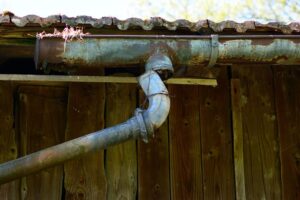Regular roof inspections by a qualified roofer are crucial for maintaining your home's integrity and preventing costly damages. These inspections include a thorough evaluation of all components, catching potential issues like decay or structural weaknesses early. Professionals use advanced tools such as rope access systems, drones, infrared thermal imaging, and pressure washers to ensure comprehensive assessments. During an inspection, they assess exterior and interior surfaces, hidden areas, and structural integrity, identifying issues that could lead to leaks, decay, or even structural collapse. Hiring a qualified roofer is a strategic investment that provides peace of mind and helps plan timely replacements for your home's most critical component.
In the pursuit of maintaining your property’s optimal condition, regular roof inspections are non-negotiable. Leaks, decay, and structural integrity issues can go unnoticed until they escalate into costly repairs. This article delves into the significance of professional roofer inspections, equipping you with insights on identifying common roof problems and understanding the advanced tools and techniques employed for thorough assessments. Learn why engaging qualified roofers is paramount for ensuring your property’s safety and long-term protection.
- Understanding the Importance of Regular Roof Inspections
- Identifying Common Roof Issues: Leaks, Decay, and Structural Problems
- The Tools and Techniques Used by Professional Roofers for Inspection
- What to Expect During a Comprehensive Roof Inspection
- Benefits of Hiring Qualified Roofers for Your Property's Safety
Understanding the Importance of Regular Roof Inspections
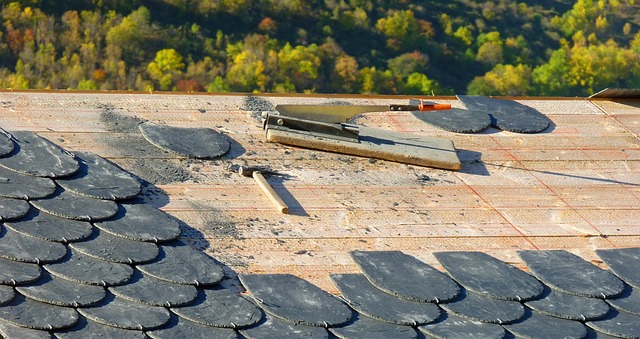
Regular roof inspections are a crucial task, often overlooked but vital for maintaining your home’s integrity and protecting it from costly damages. A roofer’s expertise is invaluable when it comes to assessing the overall health of your roof. These inspections go beyond simply checking for leaks; they involve a comprehensive evaluation of every component, ensuring everything is in optimal condition.
By scheduling regular inspections, homeowners can catch potential issues early on. Decay and structural weaknesses may not be immediately apparent but can have severe consequences if left unchecked. A qualified roofer will inspect for damaged shingles or flashing, signs of water intrusion, and even subtle indications of weakened trusses or supports. Proactive maintenance is key to preventing extensive repairs or replacements down the line.
Identifying Common Roof Issues: Leaks, Decay, and Structural Problems
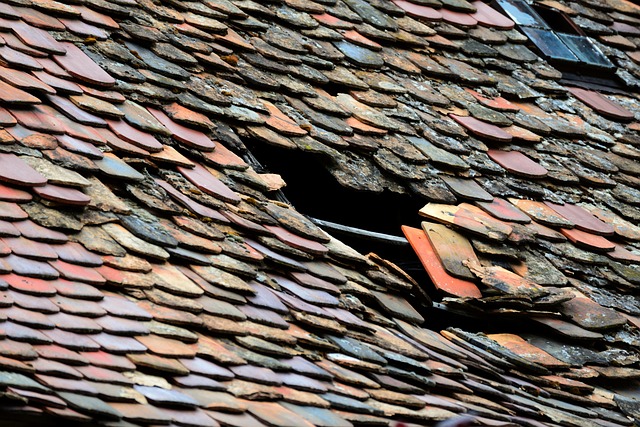
Roofer professionals often encounter a range of common roof issues that require immediate attention. Leaks are one of the most visible and pressing problems. They can originate from various sources, such as damaged or missing shingles, flashing issues around chimneys and vents, or cracks in the roof membrane. Proper inspection techniques allow roofer experts to pinpoint these leaks and implement effective repairs, ensuring water doesn’t infiltrate and cause further damage to the structure below.
Another significant concern is roof decay, primarily caused by exposure to harsh weather conditions, aging, or poor installation. Decaying roofs may show signs of sagging, blistering, or mold growth. Roofer specialists use specialized tools and materials to replace deteriorated sections, enhancing the roof’s structural integrity and longevity. By addressing these issues promptly, homeowners can prevent more severe and costly problems down the line.
The Tools and Techniques Used by Professional Roofers for Inspection

Professional roofers employ a variety of tools and techniques to thoroughly inspect roofs for leaks, decay, and structural integrity. One essential tool is the rope access system, allowing them to safely reach and examine hard-to-access areas without risking injury or damaging the property. Rooftop cameras and drones are also commonly used to capture high-resolution images and videos of the roof’s surface, enabling detailed analysis from ground level.
Additionally, roofers utilize infrared thermal imaging technology to detect temperature variations that may indicate hidden leaks or moisture intrusion. They also carry specialized tools like pressure washers for cleaning debris and examining the underlying layers of the roof. Through a combination of these advanced tools and meticulous inspection methods, professional roofers ensure comprehensive assessments, ensuring the longevity and safety of structures.
What to Expect During a Comprehensive Roof Inspection
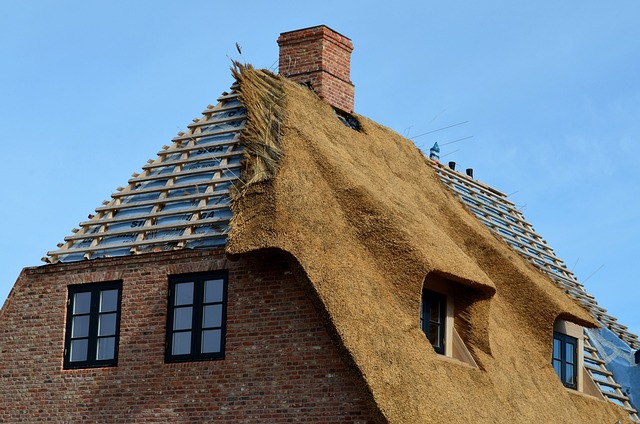
During a comprehensive roof inspection, property owners can expect a thorough evaluation of their roof’s condition by a professional roofer. The process typically begins with a visual assessment, where the inspector carefully examines the exterior and interior surfaces for any signs of damage, leaks, or structural weaknesses. This includes checking for missing or damaged shingles, flashing issues, and evidence of water intrusion.
The roofer will then use specialized tools to inspect hidden areas, such as joints, vents, and gutters, which are common problem zones. They may employ infrared technology to detect moisture or heat discrepancies that could indicate leaks or underlying structural problems. The inspection also covers the roof’s structural integrity by assessing the condition of supporting components like trusses, beams, and underlayment. This comprehensive approach ensures any issues are identified early, allowing for prompt repairs and extending the lifespan of the roof.
Benefits of Hiring Qualified Roofers for Your Property's Safety
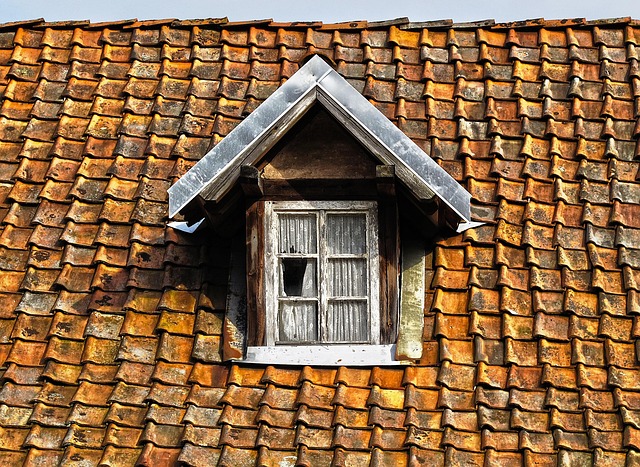
Hiring qualified roofers is a crucial investment for ensuring your property’s safety and longevity. Professionals bring a wealth of knowledge and experience to bear on inspecting roofs for leaks, decay, and structural integrity issues that might otherwise go unnoticed. They utilize advanced tools and techniques to thoroughly assess every aspect of your roof, identifying potential problems with precision and accuracy. This proactive approach not only prevents minor issues from escalating into costly repairs but also safeguards against the risk of water damage, mold growth, and even structural collapse.
Moreover, qualified roofers are equipped to provide expert advice tailored to your specific roofing needs. They can recommend suitable materials and designs based on local climate conditions, ensuring optimal performance and durability. Regular inspections by professionals can also help you make informed decisions about when to replace your roof, avoiding unexpected failures and the associated expenses. Ultimately, entrusting your property’s roof to skilled tradespeople offers peace of mind, knowing that one of the most critical components of your home or business is in capable hands.
Regular roof inspections are not just recommended, they’re essential for maintaining your property’s safety and value. By identifying leaks, decay, and structural issues early on, you can prevent costly repairs and ensure the longevity of your roof. Always trust the experts – hiring qualified roofers for comprehensive inspections is a wise investment that protects your home against unseen dangers. Whether it’s subtle cracks or damaged shingles, professional roofers are equipped with the tools and knowledge to detect even the smallest problems, ensuring your peace of mind in the long run.
